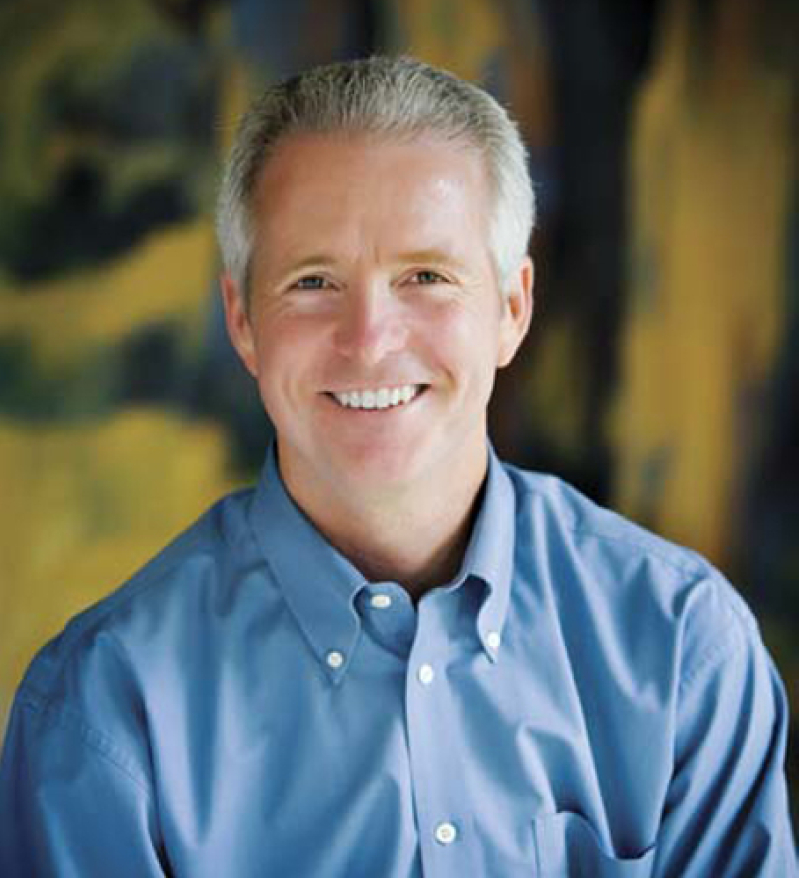
Christians are called to live life as a community; the early church believers show the best example of this: they eat together, pray together and share everything in common. Their lives are best illustrated in Acts 2, “Everyone was filled with awe, and many wonders and miraculous signs were done by the apostles.”
The Rev. John Ortberg, senior pastor of Menlo Park Presbyterian Church in Menlo Park, Calif., an evangelical church with more than 4,000 members, recently preached in his sermon about living out an authentic community. He gave an example from Mark 3, in which “Jesus went up on a mountainside and called to him those he wanted, and they came to him. He appointed twelve...that they might be with him and that he might send them out..."
In other words, Jesus never said, "Thou shalt go to church." Ortberg said, He created a new community, and they just did life together.
“They'd eat together. They'd learn together. They'd pray together. They would try to do ministry together… They fought with each other. They competed with each other. They washed each other's feet.” The pastor added, “He formed a highly intentional, life-on-life, Spirit-led, transformational community where his followers, his disciples got called, shaped, formed, and sent.
Ortberg told his congregation, “Jesus is still calling today, and he made this staggering promise that holds true." Quoting Matthew 18, "Wherever two or three of you are gathered in my name, there I am in the midst of you," he said that this is the "with God" life in community.
"In other words, disciples do not get formed in isolation. In other words, Jesus, who is always present, is uniquely present in community," he said.
Scott Peck, a writer and psychiatrist, after converting to Christianity years ago began looking at God's plan for human community and what gets in the way, said Ortberg. Peck said that what we long for, what we ache for, is what might be called true or authentic community, where people get authentic and real, masks are taken off, people show up, speak the truth, know and are known by each other.
However, Peck pointed out, said Ortberg, that we often experience instead is what might be called pseudo-community - a fake version of the real deal. The pastor said that in this type of community people might hang out together, be polite and pleasant when we talk with each other, but the "primary dynamic of pseudo-community is conflict avoidance," which doesn't transform anybody.
Then, the real question becomes how do you move from pseudo-community to authentic community, said Ortberg. Peck says what's required is entering what might be called a "tunnel of chaos" - somebody has to take a step out into chaos or unknown, take a risk, show up, have courage, and trust God enough to speak a hard truth.
"In a church, sometimes people can show up and just to church week after week, month after month, and year after year, sit in the same place, smile and nod at the same faces, and nobody every really knows them.
"We don't want that. Jesus doesn't want that. That's not the "with God" life," Ortberg exclaimed. "Is this a way God is calling me to enter into the "with God" life in community?"
Then, the pastor explained that the first way to get from pseudo-community to authentic community involves the step of initiating community, just like how Jesus recruited his disciples and built a little community. He encouraged the audience to take action to expand their spiritual community, where they are supported and challenged to grow their faith, through joining a small group or a ministry, or serving together.
But the question is, “How did you get involved?” Ortberg said, "The number one answer is somebody asked me. On the other hand, when people who are not involved are asked how come they're not involved, does anybody want to guess what the number one answer is? 'Nobody asked.' So…ask!"
The other step is the "risk of challenging each other," which is a step into the tunnel of chaos, said Ortberg. "Spiritual growth is not a neutral process; it's a battle against sin, and Jesus is always doing this." He said that Jesus is constantly challenging people to deeper devotion to God, to genuine transformation of character, always calls spiritual entropy out when He sees it in people, addressing it with courage.
Then, there is one more step, Ortberg exhorted. "There's a risky step of being vulnerable in community." He thinks that one of the most amazing aspects of Jesus' ministry was his transparency, where His disciples saw Jesus tired, hungry, angry, and rejected.
"We live in a culture where image management is like an art," he said. "We think that's going to make people think highly of us, and instead, it just isolates us. When we come together and are open and honest in my weakness, my failure, my humaness... It's like people are so hungry for that."
Ortberg encouraged the congregation to ask and pray, and challenge each other to grow in the relationship with the Lord.
"When the Holy Spirit fell upon people with great power and this little community got formed and it grew... God's plan was the creation of the beauty of community on earth, with himself included." he concluded.







